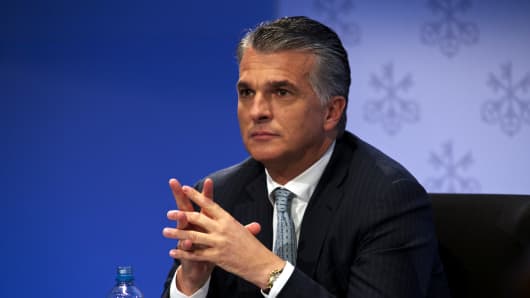UBS is about half way through its planned 10,000 job cuts, said Sergio Ermotti, chief executive officer of Switzerland's biggest bank, which is undergoing a major cost-cutting overhaul.
"We are almost half way through. The structural changes in the investment bank are done. The second chunk is about becoming more efficient and effective across the board in wealth management, investment bank, asset management, in the way we operate and support our businesses," Ermotti told CNBC Asia's "Squawk Box" on Friday.
(Read more: UBS to cut up to 10,000 jobs)
The bank has suffered its share of losses and setbacks since the onset of the global financial crisis and is in the process of reshaping itself, by shifting its focus away from risky trading in its investment banking division toward its wealth management operations.
Massive downsizing plans announced by UBS last October were not received well by its employees, with disgruntled staff taking to social media to voice their frustration about how bank is handling the layoffs.
(Read more: Shocked UBS staff take to Twitter)
According to media reports, which cited sources within the bank, some staff turned up to work to find their employee cards no longer worked at the turnstile only to be escorted to human resources.





